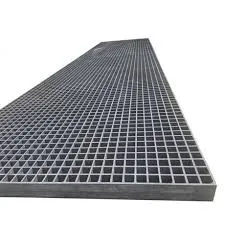
-
 Afrikaans
Afrikaans -
 Albanian
Albanian -
 Amharic
Amharic -
 Arabic
Arabic -
 Armenian
Armenian -
 Azerbaijani
Azerbaijani -
 Basque
Basque -
 Belarusian
Belarusian -
 Bengali
Bengali -
 Bosnian
Bosnian -
 Bulgarian
Bulgarian -
 Catalan
Catalan -
 Cebuano
Cebuano -
 China
China -
 China (Taiwan)
China (Taiwan) -
 Corsican
Corsican -
 Croatian
Croatian -
 Czech
Czech -
 Danish
Danish -
 Dutch
Dutch -
 English
English -
 Esperanto
Esperanto -
 Estonian
Estonian -
 Finnish
Finnish -
 French
French -
 Frisian
Frisian -
 Galician
Galician -
 Georgian
Georgian -
 German
German -
 Greek
Greek -
 Gujarati
Gujarati -
 Haitian Creole
Haitian Creole -
 hausa
hausa -
 hawaiian
hawaiian -
 Hebrew
Hebrew -
 Hindi
Hindi -
 Miao
Miao -
 Hungarian
Hungarian -
 Icelandic
Icelandic -
 igbo
igbo -
 Indonesian
Indonesian -
 irish
irish -
 Italian
Italian -
 Japanese
Japanese -
 Javanese
Javanese -
 Kannada
Kannada -
 kazakh
kazakh -
 Khmer
Khmer -
 Rwandese
Rwandese -
 Korean
Korean -
 Kurdish
Kurdish -
 Kyrgyz
Kyrgyz -
 Lao
Lao -
 Latin
Latin -
 Latvian
Latvian -
 Lithuanian
Lithuanian -
 Luxembourgish
Luxembourgish -
 Macedonian
Macedonian -
 Malgashi
Malgashi -
 Malay
Malay -
 Malayalam
Malayalam -
 Maltese
Maltese -
 Maori
Maori -
 Marathi
Marathi -
 Mongolian
Mongolian -
 Myanmar
Myanmar -
 Nepali
Nepali -
 Norwegian
Norwegian -
 Norwegian
Norwegian -
 Occitan
Occitan -
 Pashto
Pashto -
 Persian
Persian -
 Polish
Polish -
 Portuguese
Portuguese -
 Punjabi
Punjabi -
 Romanian
Romanian -
 Russian
Russian -
 Samoan
Samoan -
 Scottish Gaelic
Scottish Gaelic -
 Serbian
Serbian -
 Sesotho
Sesotho -
 Shona
Shona -
 Sindhi
Sindhi -
 Sinhala
Sinhala -
 Slovak
Slovak -
 Slovenian
Slovenian -
 Somali
Somali -
 Spanish
Spanish -
 Sundanese
Sundanese -
 Swahili
Swahili -
 Swedish
Swedish -
 Tagalog
Tagalog -
 Tajik
Tajik -
 Tamil
Tamil -
 Tatar
Tatar -
 Telugu
Telugu -
 Thai
Thai -
 Turkish
Turkish -
 Turkmen
Turkmen -
 Ukrainian
Ukrainian -
 Urdu
Urdu -
 Uighur
Uighur -
 Uzbek
Uzbek -
 Vietnamese
Vietnamese -
 Welsh
Welsh -
 Bantu
Bantu -
 Yiddish
Yiddish -
 Yoruba
Yoruba -
 Zulu
Zulu
FRP Field Tank Solutions | Durable & Lightweight Storage
Understanding FRP Field Tanks A Sustainable Solution for Water Storage
In recent years, the demand for efficient and sustainable water storage solutions has increased significantly, particularly in industries such as agriculture, construction, and municipal water supply. One innovative solution that has emerged is the use of Fiber Reinforced Polymer (FRP) field tanks. These tanks offer a combination of durability, corrosion resistance, and lightweight design, making them an attractive option for various applications.
What are FRP Field Tanks?
FRP field tanks are large storage containers made from a composite material consisting of fibers (usually glass or carbon) embedded in a polymer matrix. This structure provides the tanks with enhanced strength and resilience compared to traditional materials such as steel or concrete. The lightweight nature of FRP also allows for easier transportation and installation, reducing labor costs and time.
Benefits of FRP Field Tanks
1. Corrosion Resistance One of the primary advantages of FRP tanks is their high resistance to corrosion. Unlike metal tanks that can rust when exposed to moisture, FRP tanks are impervious to most chemicals and harsh environmental conditions. This makes them ideal for storing various liquids, including water, chemicals, and even waste products.
2. Lightweight Design The lightweight characteristics of FRP tanks facilitate easier handling and installation. They can be transported and installed with less heavy equipment, making them suitable for locations that may not have the infrastructure to support traditional storage tanks.
frp field tank

3. Longevity FRP materials are known for their durability and longevity. With proper maintenance, FRP field tanks can last for decades, providing a reliable solution for water storage. This long service life results in lower overall lifecycle costs, as replacement and repair expenses are minimized.
4. Versatility FRP tanks can be customized to meet specific needs, including size, shape, and storage capacity. They can be designed for above-ground or underground installation and can be utilized for various applications, from agricultural irrigation systems to municipal water treatment plants.
5. Environmental Impact Given the growing concern over environmental sustainability, FRP tanks present a greener alternative to traditional tanks. Their manufacturing process can be more energy-efficient, and their durability reduces the need for frequent replacements, thus minimizing waste.
Applications of FRP Field Tanks
FRP field tanks are used across various industries. In agriculture, they store water for irrigation, ensuring crops receive a reliable water supply. In the construction industry, they serve as temporary water storage solutions during projects. Municipalities utilize FRP tanks for holding drinking water and wastewater, providing a safe and efficient means of storage.
Conclusion
FRP field tanks represent a modern solution to the challenges of water storage in a variety of sectors. Their corrosion resistance, lightweight nature, and longevity make them an excellent choice for those seeking a sustainable and efficient option. As industries continue to seek innovative and eco-friendly storage solutions, FRP tanks are likely to play an increasingly significant role in meeting these demands. Investing in FRP technology could pave the way for a more sustainable approach to water management, benefiting both businesses and the environment.









